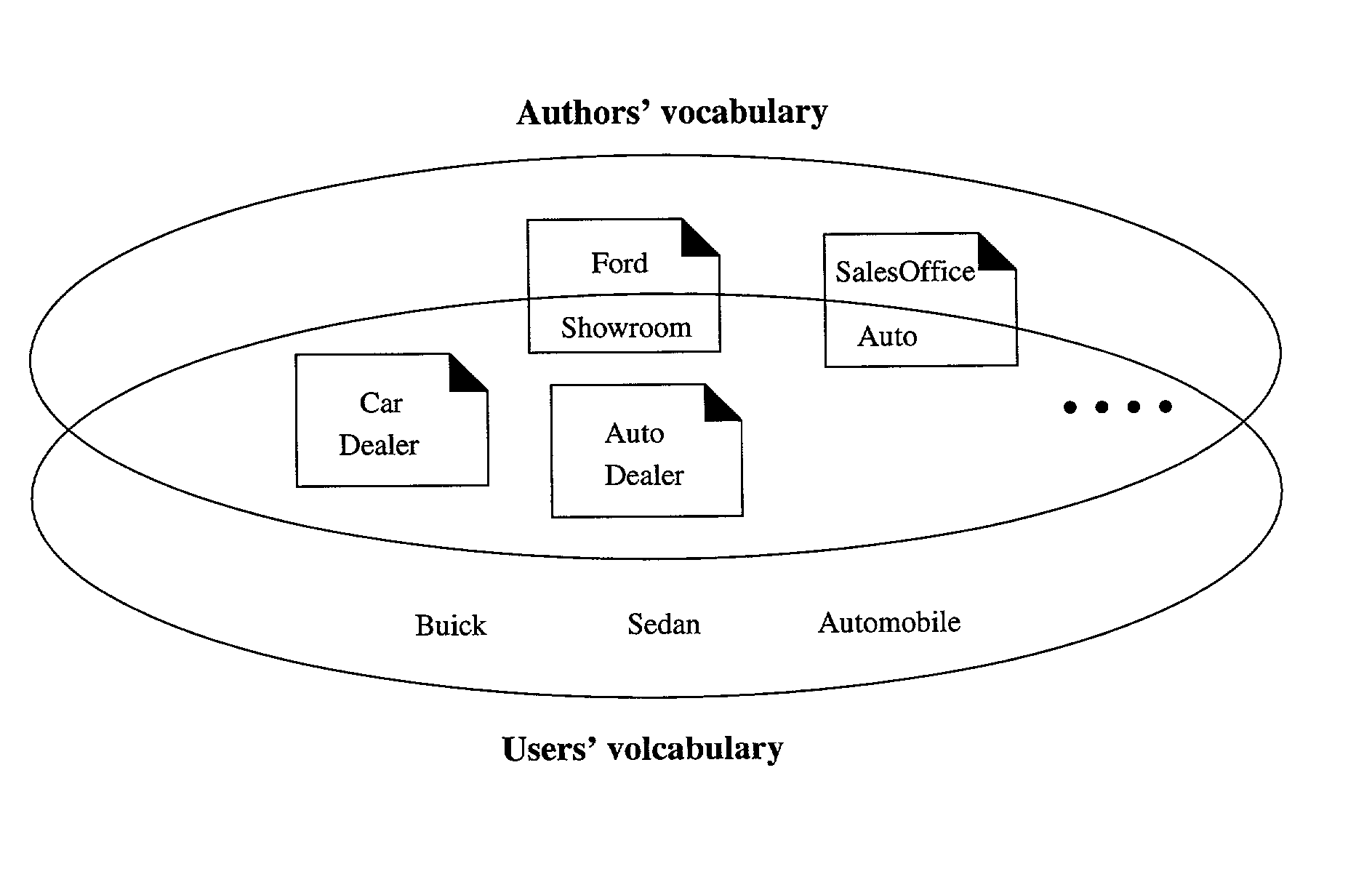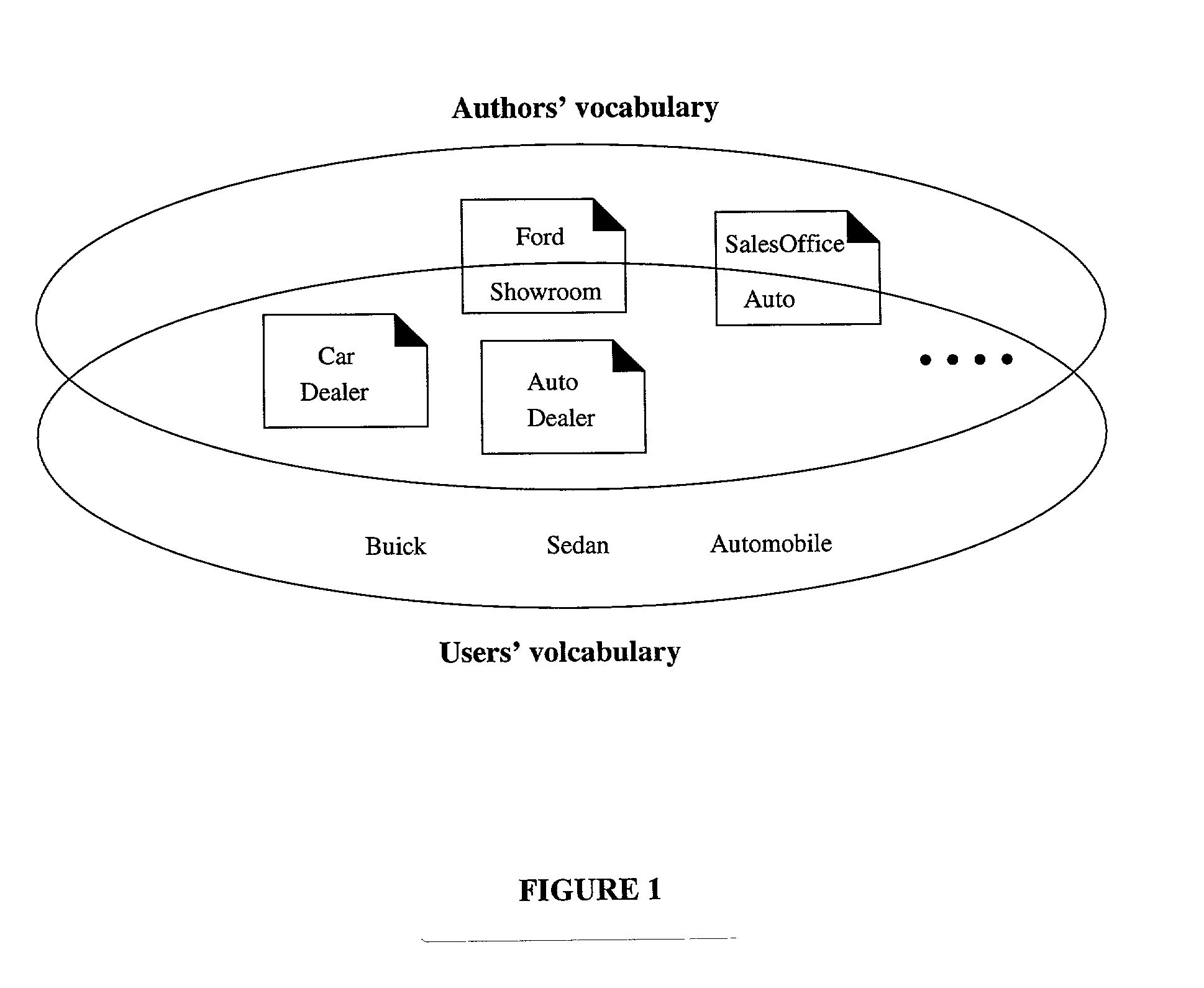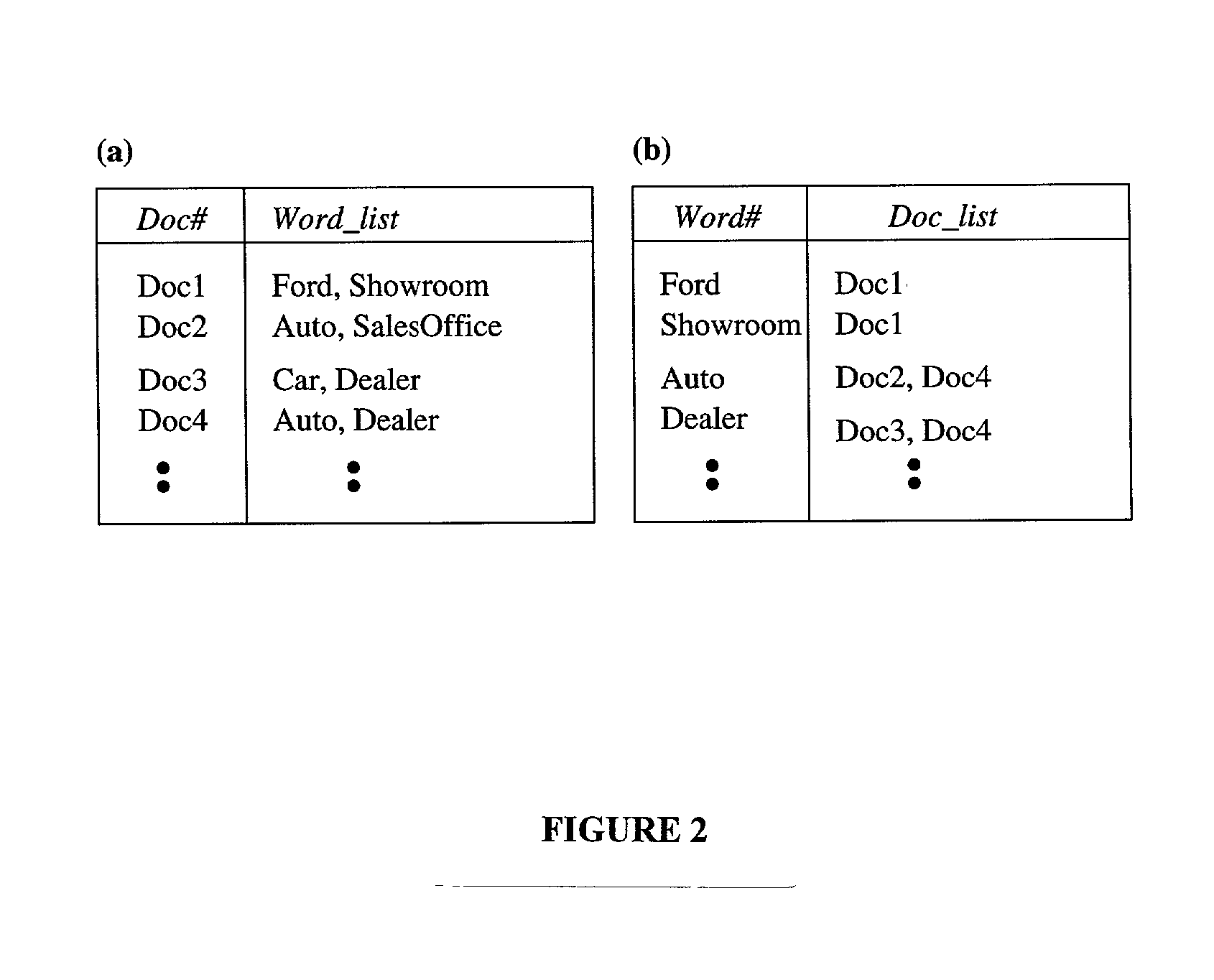Supporting web-query expansion efficiently using multi-granularity indexing and query processing
a query processing and multi-granularity technology, applied in the field of indexes and queries, can solve problems such as word mismatch, information retrieval word mismatch, and the inability of the user to retrieve all the relevant documents
- Summary
- Abstract
- Description
- Claims
- Application Information
AI Technical Summary
Problems solved by technology
Method used
Image
Examples
Embodiment Construction
[0034] A preferred embodiment of a method and apparatus for efficient query expansion is described below in detail with reference to the accompanying drawings. It is to be noted that while the following discussion is presented in the context of the NEC PERCIO Object Oriented Database Management System (OODBMS), the present invention is not so limited. The present invention may be applied to a variety of database systems and document collections.
[0035] The present invention provides efficient indexing and processing support for query expansion by applying a concept of multi-granularity. The present approach takes the indices for semantically similar and syntactically related words after word stemming using available techniques, (see e.g., J. Xu et al., "Query Expansion Using Local and Global Document Analysis," Proceedings of the 19th Annual International ACM SIGIR Conference, Zurich, Switzerland, 1996; and C. Jacquemin, "Guessing Morphology from Terms and Corpora," Proceedings of th...
PUM
 Login to View More
Login to View More Abstract
Description
Claims
Application Information
 Login to View More
Login to View More - R&D
- Intellectual Property
- Life Sciences
- Materials
- Tech Scout
- Unparalleled Data Quality
- Higher Quality Content
- 60% Fewer Hallucinations
Browse by: Latest US Patents, China's latest patents, Technical Efficacy Thesaurus, Application Domain, Technology Topic, Popular Technical Reports.
© 2025 PatSnap. All rights reserved.Legal|Privacy policy|Modern Slavery Act Transparency Statement|Sitemap|About US| Contact US: help@patsnap.com



